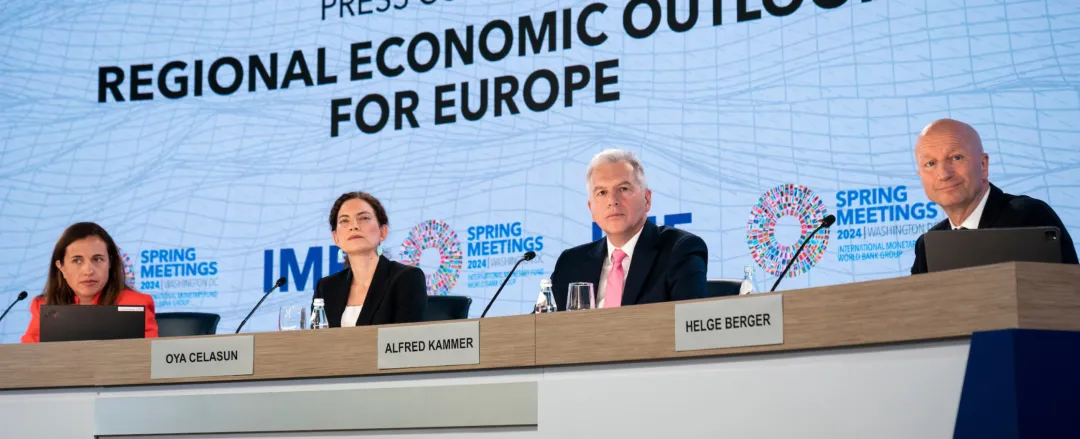Europe’s Growth on the Upswing: The Imperative of Productivity Measures
Europe’s economic landscape is showing promising signs of improvement, with recent data indicating a potential soft landing and a steady recovery on the horizon1. However, to secure this baseline of growth and ensure price stability, a careful calibration of monetary policy is essential. The International Monetary Fund (IMF) emphasizes the need for faster fiscal consolidation to build adequate buffers for future shocks, while structural fiscal reforms are crucial to address long-term expenditure pressures1.

Europe’s Growth on the Upswing (Credit: IMF Photo/Lewis Joly)
Productivity as the Cornerstone of Growth
The real engine behind sustained economic growth is productivity. Europe’s productivity growth has lagged behind its peers for decades, with the European Union (EU) now accounting for 18% of global GDP, down from 27% in 19952. To reverse this trend, Europe must focus on measures that enhance labor force participation, prepare the workforce for structural shifts, foster an environment conducive to private investment, and promote innovation—particularly in the context of the green transition1.
Investing in Technology and Skills
Technology and skills are pivotal leverage points for increasing Europe’s competitiveness. Despite being home to some of the world’s most powerful computers, Europe accounts for the smallest share of the top 500 computers globally2. Targeted investments in technology, coupled with a focus on education and skill development, can quickly change the landscape. For instance, the relative number of STEM graduates, including computer science, engineers, and AI-specific professionals, is a metric that can gauge Europe’s readiness for the future2.
Italian former prime minister Enrico Letta presents his report on the future of the EU’s single market last week. Doubling down on integration is a prerequisite for achieving anything else © Kenzo Tribouillard/AFP/Getty Images
Energy, Capital, and the Role of the EU
The transformation of Europe’s energy sector and the efficient allocation of capital are also historic drivers of productivity. The EU’s role in facilitating this transformation cannot be overstated. By promoting greater European integration and maintaining the integrity of the EU single market, the effects of reforms can be amplified3.
Quotations from Experts
Experts from the IMF have stated, “A soft landing in Europe is within reach. Executing it will require careful monetary policy calibration. Fiscal policy needs to create buffers to tackle future shocks. Raising growth beyond the near-term recovery needs efforts to build more integrated markets with reforms needed at both domestic and regional levels”1.
In conclusion, Europe’s growth prospects are improving, but to sustain this momentum, a concerted focus on productivity measures is imperative. By investing in technology, enhancing skills, transforming energy and capital markets, and fostering greater EU integration, Europe can secure a lasting recovery and a prosperous future.


